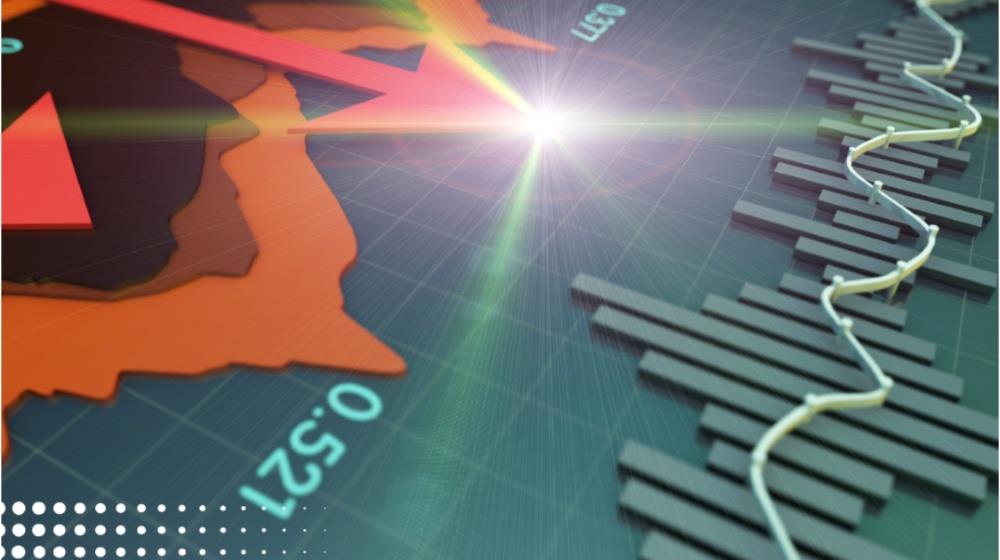The intricate relationship between geopolitical instability, trade powerhouses’ competition, conflicts and the globalised economy is indisputable today. What is also an undeniable necessity is that corporations need to understand and appreciate how geopolitical events generate pressures that impact highly interconnected economies, as much as observing international monetary and financial institutions and trends.
From trade wars and sanctions to political upheavals and diplomatic negotiations, these so-called geopolitical risks can cause market volatility, disrupt supply chains, affect currency exchange rates and even destabilise economies. Understanding the roots as well as the potential impact of these shifts, businesses and investors can make informed decisions and better manage risks. It is therefore essential for corporations to closely monitor these developments and implement strategies such as diversifying investments and hedging against risks, in order to successfully navigate the complexities of the global market.
Dissecting the geopolitical economic factors
Geopolitical events often trigger significant shifts in market dynamics. In recent years several such changes have caused shocks in the global financial order, such as Brexit, the US-China trade tensions, and the Ukraine war, which have exemplified how political decisions can ripple through global markets. The ongoing conflict in the Middle East, and the impact of sanctions on countries such as Iran and North Korea or the economic fallout from the Venezuela crisis, even political instability in regions like Sub Saharan Africa, further highlight the profound effects of geopolitical developments.
All these factors are interrelated with the persistent high global inflation, creating a complex and volatile economic environment. Geopolitical instability often leads to increased uncertainty, which can drive up the prices of essential commodities like oil and gas, contributing to inflationary pressures. Trade disruptions and sanctions can exacerbate supply chain issues, leading to shortages and higher costs for goods and services. Moreover, currency fluctuations caused by geopolitical events can impact import and export prices, further influencing inflation rates.
While capital markets have proven quite resilient, despite constant geopolitical shocks and inflationary pressures, equity markets have recorded significant gains, and corporate profitability has shown growth for the first time in months. However, financial analysts advise caution due to the unpredictable nature of ongoing geopolitical tensions and the potential for future inflationary pressures.
A balancing act: economic growth and inflation control
As geopolitical tensions persist, central banks worldwide do still face challenges in managing monetary policy, balancing between controlling inflation and supporting economic growth. Although inflation has continued to fall in the past few months, financing conditions remain restrictive. As these geopolitical and economic factors continue to evolve, their complex interplay will undoubtedly shape the future of global markets, requiring vigilance and adaptability from policymakers and investors alike. Several factors could negatively impact the financial climate, including the sustained high US interest rates and elevated stock valuations which remain notable concerns. Additionally, political uncertainty from the upcoming US presidential election and ongoing conflicts in the Middle East and Ukraine could dampen market sentiment. In Europe, the new year began with expectations of an interest rate reduction in the second half, alongside the first growth in corporate profitability in four quarters. Indeed, at its June meeting, the European Central Bank (ECB) decided on the first rate cut since 2019, although further cuts during the year seem unlikely, while substantial macroeconomic improvements are expected to take considerable time to fully materialize.
Geopolitical shifting impacting local and global economies
Key economic factors influenced by geopolitical shifts, include, currency fluctuations, affected supply and prices of crucial commodities like oil and gas, while uncertainty driven by geopolitical events can lead to market volatility as investors seek safe-haven assets or withdraw from riskier investments. Geopolitical shifts do not affect all economies alike. Developed and emerging markets can experience varying impacts based on their economic structures, dependency on global trade, and political stability. In addition to the impact of global events, local economies can also experience internal volatility. Regional tensions or policy changes can disrupt local markets, influence foreign direct investment, and alter the competitive landscape for domestic businesses.
Navigating through uncertainty
To navigate the complexities of geopolitical shifts, businesses and investors first and foremost should stay informed and educated so they can understand and analyse geopolitical shifts. Regularly consulting reliable sources and expert analyses can provide valuable insights. Diversification and flexibility are examples of strategies to effectively navigate through uncertain political and financial times mitigating risks while being agile, shifting to new opportunities and markets that may give rise to new regional dynamics; adapting to changing geopolitical landscapes could result in gaining a competitive edge.
Keeping track of significant geopolitical and economic events is essential for navigating market dynamics. For instance, the European Central Bank (ECB) meeting on June 6 provided insights into monetary policy decisions influencing market conditions. Such events offer critical information for making informed strategic decisions. Understanding the impact of geopolitical and economic shifts is crucial for businesses and investors aiming to thrive in a highly interconnected and volatile global market. By staying vigilant, adaptable, and informed, they can navigate the complexities and seize opportunities amid uncertainties.
By Marios Chailis, CMO Libertex Group
About Libertex
Part of the Libertex Group, Libertex is an online broker offering tradable CFDs with underlying assets being commodities, Forex, ETFs, cryptocurrencies, and others. Libertex also offers investments in real stocks. Over the years, Libertex has received multiple prestigious awards and recognitions, including “Global CFD Broker of the Year” (PAN Finance Awards, 2024) and “Best Trading Experience” (Ultimate Fintech Awards, 2023). Libertex is the Official Online Trading Partner of FC Bayern, in what has become a dynamic and exciting partnership. Since being founded in 1997, the Libertex Group has grown into a robust fintech powerhouse, with an established presence in various jurisdictions, serving millions of clients from several countries all over the world. In Europe the Libertex trading platform is operated by Indication Investments Ltd., a Cyprus Investment Firm regulated and supervised by the Cyprus Securities and Exchange Commission (CySEC) with CIF License number 164/12.
For more information about Libertex visit www.libertex.com









